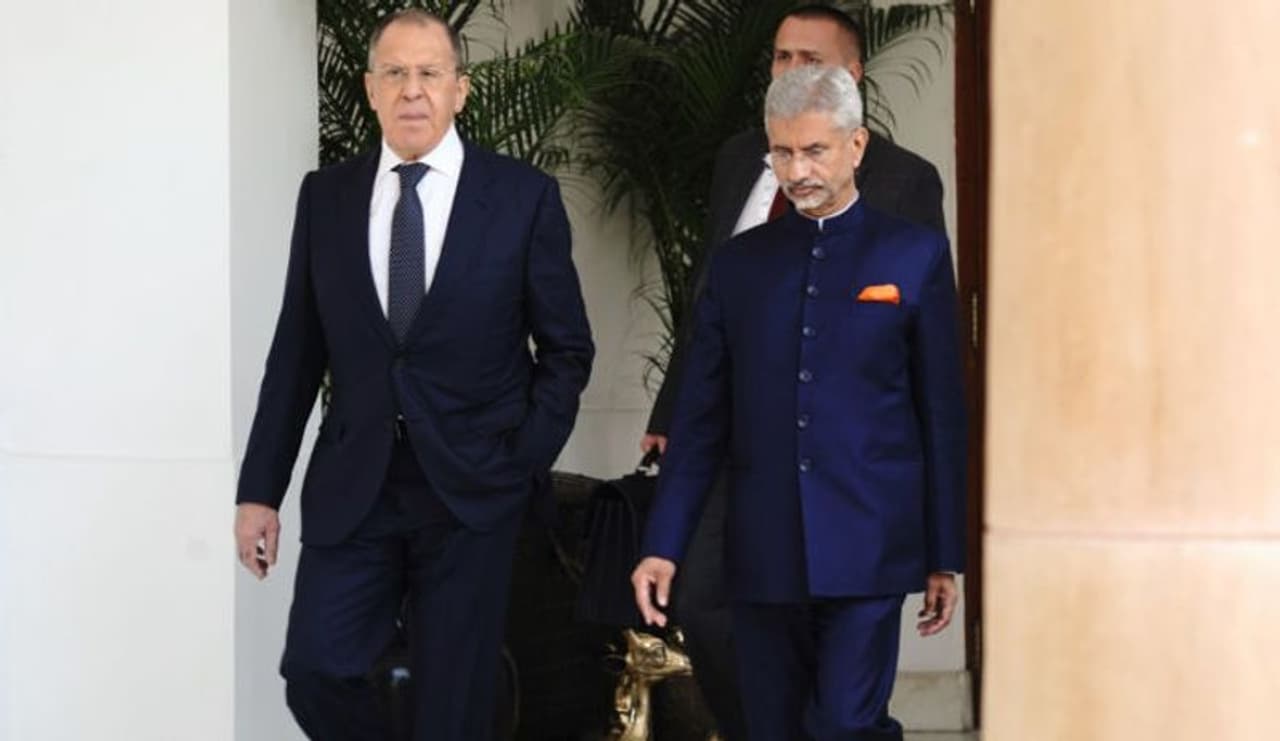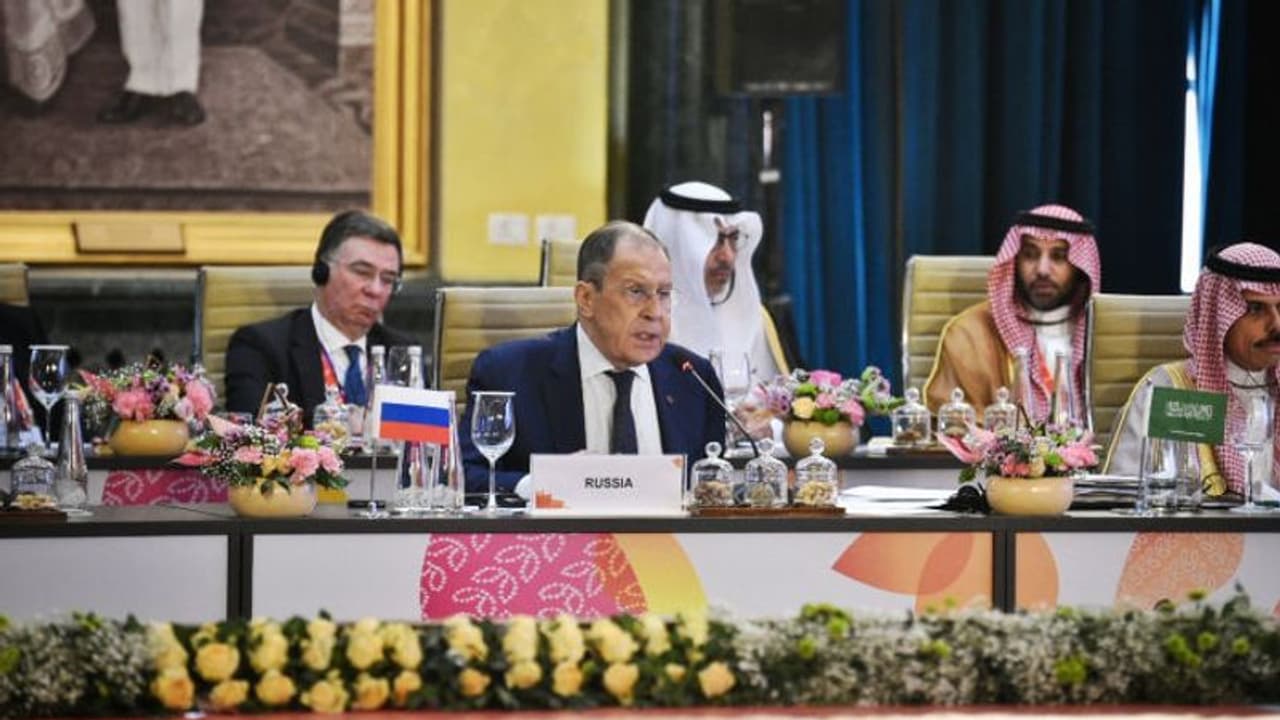The major point upon which all G20 Foreign Ministers were seen to be having a difference of opinion was the Ukraine war. According to media reports, China and Russia objected to the Chair's summary, which said: "The war in Ukraine has further adversely impacted the global economy
The G20 Foreign Ministers' Summit ended on Thursday with a Chair's summary rather than a joint communique as the member states differed on issues like the war in Ukraine and the charter of the United Nations.

The major point upon which all G20 Foreign Ministers were seen to be having a difference of opinion was the Ukraine war. According to media reports, China and Russia objected to the Chair's summary, which said: "The war in Ukraine has further adversely impacted the global economy. There was a discussion on the issue. We reiterated our national positions as expressed in other fora, including the UN Security Council and the UN General Assembly, which, in Resolution No. ES-11/1 dated 2 March 2022, as adopted by majority vote (141 votes for, 5 against, 35 abstentions, 12 absent) deplores in the strongest terms the aggression by the Russian Federation against Ukraine and demands its complete and unconditional withdrawal from the territory of Ukraine."
"Most members strongly condemned the war in Ukraine and stressed it is causing immense human suffering and exacerbating existing fragilities in the global economy – constraining growth, increasing inflation, disrupting supply chains, heightening energy and food insecurity, and elevating financial stability risks. There were other views and different assessments of the situation and sanctions. Recognizing that the G20 is not the forum to resolve security issues, we acknowledge that security issues can have significant consequences for the global economy."
Further, there was an objection to another point on the peaceful resolution of conflict. The Chair's summary noted, "It is essential to uphold international law and the multilateral system that safeguards peace and stability. This includes defending all the Purposes and Principles enshrined in the Charter of the United Nations and adhering to international humanitarian law, including the protection of civilians and infrastructure in armed conflicts. The use or threat of use of nuclear weapons is inadmissible. The peaceful resolution of conflicts, and efforts to address crises, as well as diplomacy and dialogue, are vital. Today's era must not be of war."

S Jaishankar explains why there was no joint communique
Speaking about the non-issuance of a joint communique, Foreign Minister S Jaishankar said, "There were a large number of issues where there was agreement: multilateralism, food and energy security, climate change, gender issues, global health, terrorism. There was a considerable meeting of minds. If we had a perfect meeting of minds, we could have had a collective statement, but divergences on Ukraine did come in the way of that."
He also said: "Despite differences on Ukraine, we all were able to reach consensus on other issues."
Further giving details about the meeting, he said that all G20 member states condemned terrorism in all its forms. During this edition of the G20 meeting, the members also discussed counter-narcotics for the first time.
The war between Russia and Ukraine is now in its second year and has remained in the spotlight during the meeting of G20 foreign ministers.
Russia has accused the West of turning work on the G20 agenda into a "farce" and said Western delegations wanted to shift responsibility for their economic failures onto Moscow. Russia describes its action in Ukraine as a special military operation to eliminate security threats.
Russian Foreign Minister slams West
Russian Foreign Minister Sergey Lavrov said, "If we see these countries (from the West), they were conquering land and exploiting the people. Unfortunately, the West did not drop its neocolonial habits... the West is still promoting their interests without considering the interests of the global community."
"Some of them (nations) under pressure say certain things or vote in a certain manner to relieve themselves from US pressure, but almost no developing country, almost none of them, joined sanctions under Russia because they are aware what kind of game West is playing," he added.
"We have never stood against any state or any country developing foreign ties with any other state. We do not feel isolated. The West is isolating itself now. If the West is so democratic, why can't they apply democratic principles internationally," he asked.
